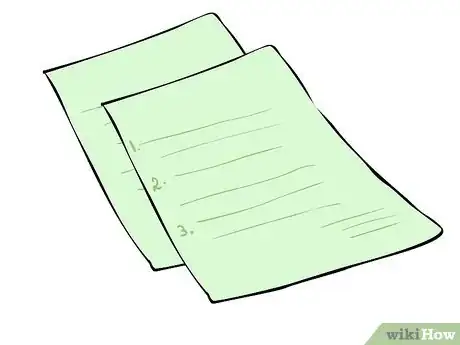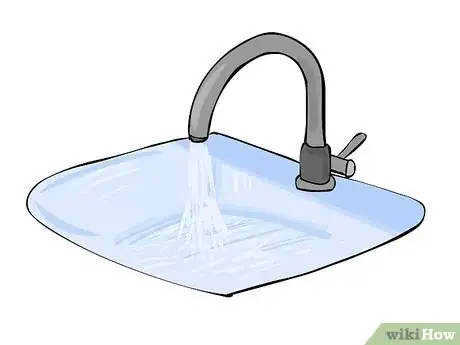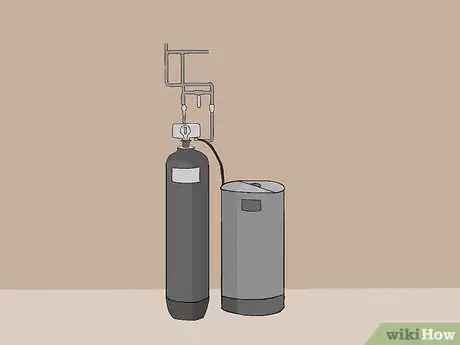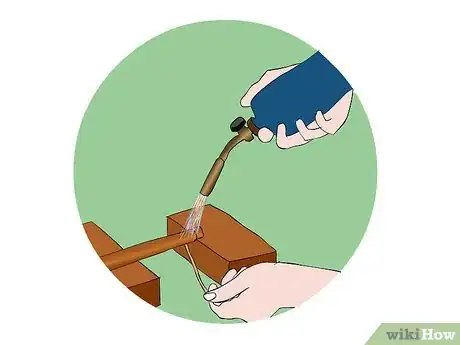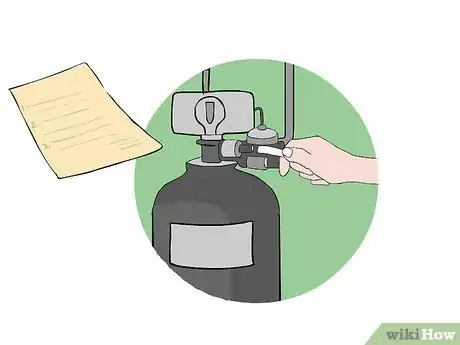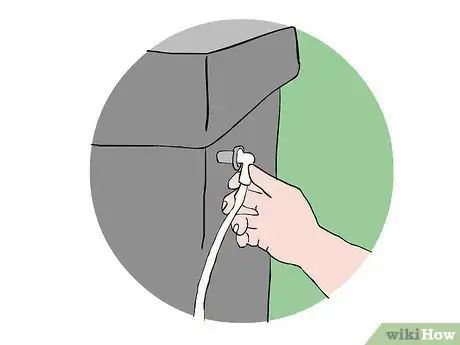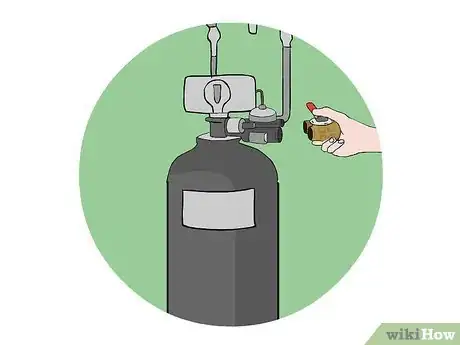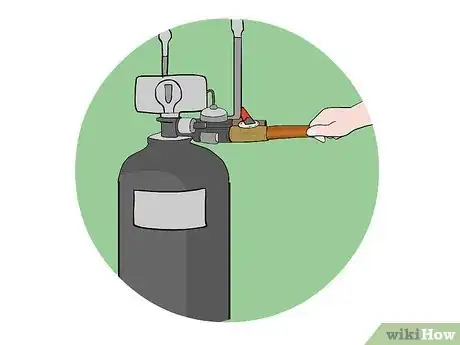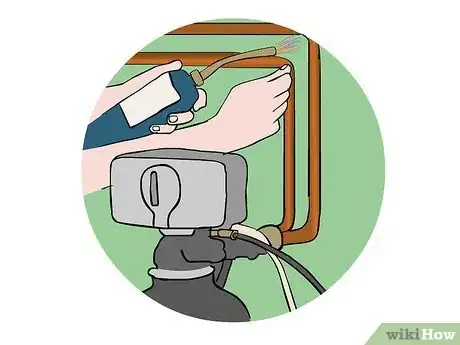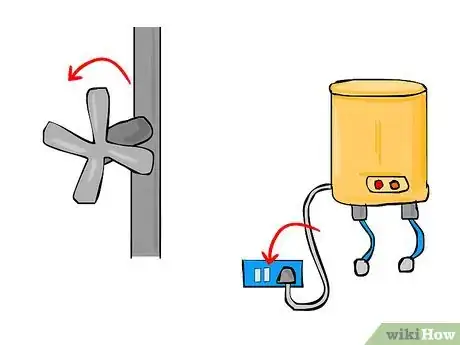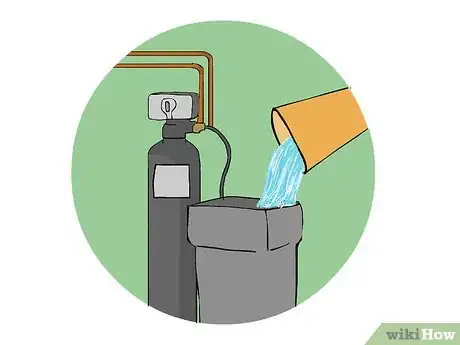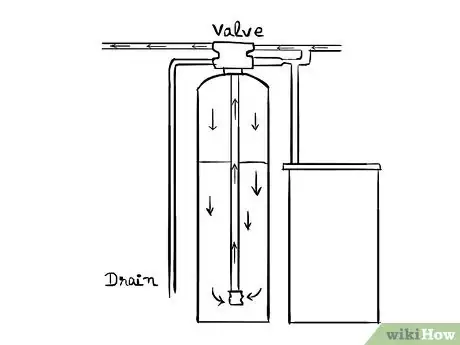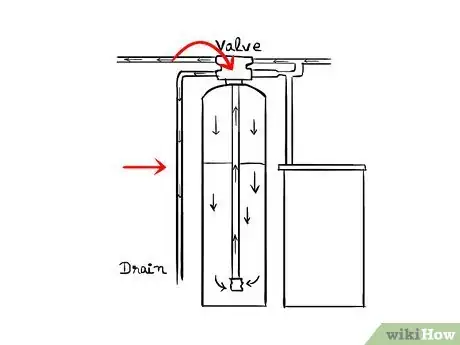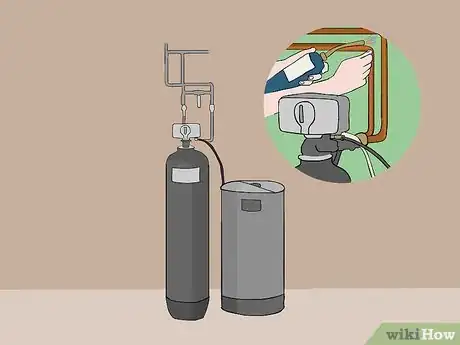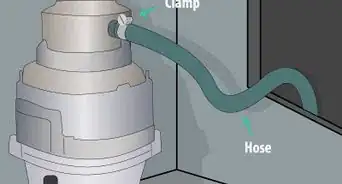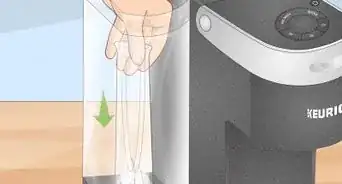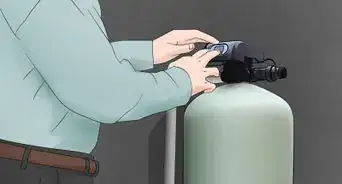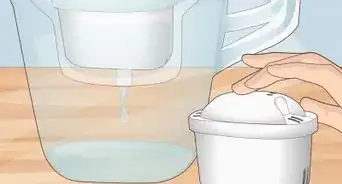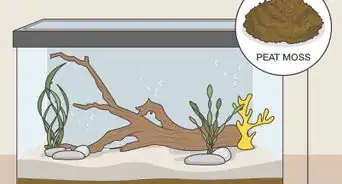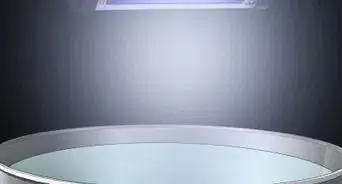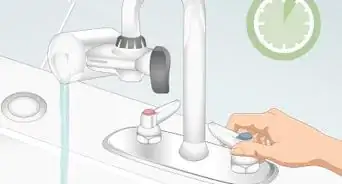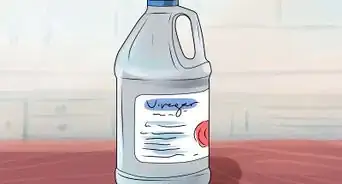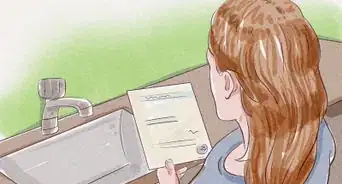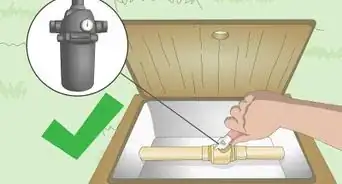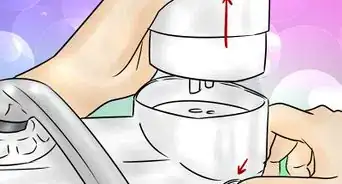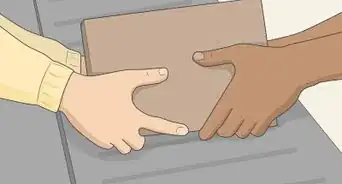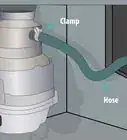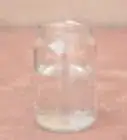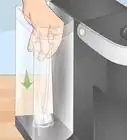X
wikiHow is a “wiki,” similar to Wikipedia, which means that many of our articles are co-written by multiple authors. To create this article, 13 people, some anonymous, worked to edit and improve it over time.
This article has been viewed 185,024 times.
Learn more...
Ground water that has excessive minerals in it is called hard water. Hard water doesn't dissolve soap and detergent very well and leaves behind scales, which stain toilets and sinks. Installing a water softener will reduce the amount of minerals, and provide your house with soft water.
Steps
-
1Read all the directions that came with your water softener before you began the installation.
-
2Shut off the water to the house and turn off the power to the hot water heater.[1]Advertisement
-
3Turn on all the faucets and outside hoses to drain your water lines before you put in a water softener.[2]
-
4Position your water conditioner in a dry, safe area that is level. Most water softeners have 2 tanks, and you need to set them next to each other.
-
5Measure the length between the cold water line and the bypass ports on the water softener tank with a measuring tape. Cut a piece of copper tubing that length, and solder fittings on the ends. Water conditioner installation includes some soldering work.[3]
-
6Follow the manufacturer's direction to install the discharge tube on the water softener head.
-
7Run the overflow tube that's attached to the side of the water conditioner tank and the discharge tube to a drain. With water softener installation, you must provide drainage.[4]
-
8Put the bypass valve on to the water conditioner's head valve. Adjust the screws on the stainless steel clamps with a screwdriver to seat the valve. When you install a water softener, be sure to have all your tools ready.
-
9Connect the copper tubing that delivers water to the bypass valve. Use a wrench to tighten the supply tube nuts. When you put in a water softener, don't wrench the nuts too tight.
-
10Attach the copper tubing from the water conditioner to the water lines.
- Scrub the fittings and the pipes with steel wool. When installing a water conditioner, you'll need to solder the fitting to the pipes.
- Solder the fittings together by applying flux and melting it with a propane torch.
-
11Turn your electric heater and the water to the house back on.
-
12Plug the control valve in and put about 4 gallons (15.142 liters) of water into the brine tank. Water softener installation includes setting up the brine tank, and you'll need to add 40 lbs. (18.144 kg) of potassium chloride salt or sodium chloride to the unit.[5]
-
13Put your conditioner into the backwash stage and set the bypass valve to the service position. To put in a water softener, open the water supply valve to the 1/4 position to let oxygen run from the drain line.
-
14Turn the water supply valve completely on when a steady stream of water appears at the drain.
-
15Let the conditioner run through the complete backwash cycle when installing a water softener.
-
16Test the system for leaks. If any water is escaping, check your soldering and the nuts. Re-solder or tighten nuts to repair any leaks.
Advertisement
Community Q&A
-
QuestionHow can I drain softener without going through the septic tank?
 Community AnswerYour septic tank takes all the drain water. Why do you not want it going to the septic tank?
Community AnswerYour septic tank takes all the drain water. Why do you not want it going to the septic tank? -
QuestionDoes the water softener need to be close to the water heater?
 Community AnswerNo, but usually they are close anyways since the appliances are normally in a closet where all these things are installed. Otherwise, it would not change operation to have it elsewhere.
Community AnswerNo, but usually they are close anyways since the appliances are normally in a closet where all these things are installed. Otherwise, it would not change operation to have it elsewhere. -
QuestionWhat if I don't have a drain? Are there any other options?
 WECO Sales TeamCommunity AnswerCollected calcium, iron and magnesium ions (hardness ions) in the bed need to be flushed out. This is done by sending water at a high flow rate though the bed in reverse direction of normal water flow. So to answer your question, all water softeners must have a drain that backwashes the softener bed periodically. If you just need particulate contaminants removed from water, you can go with a big blue cartridge filter instead of a softener and avoid the need for a drain.
WECO Sales TeamCommunity AnswerCollected calcium, iron and magnesium ions (hardness ions) in the bed need to be flushed out. This is done by sending water at a high flow rate though the bed in reverse direction of normal water flow. So to answer your question, all water softeners must have a drain that backwashes the softener bed periodically. If you just need particulate contaminants removed from water, you can go with a big blue cartridge filter instead of a softener and avoid the need for a drain.
Advertisement
Things You'll Need
- Water Softener
- Measuring tape
- Soldering iron
- Fittings
- Copper tubing
- Screwdriver
- Wrench
- Steel wool
- Flux
- Propane torch
- Potassium chloride salt or sodium chloride
References
- ↑ https://www.bhg.com/home-improvement/plumbing/how-to-install-water-softener/
- ↑ https://www.watersoftenercritic.com/water-softener-installation/
- ↑ https://www.watersoftenercritic.com/water-softener-installation/
- ↑ https://www.bhg.com/home-improvement/plumbing/how-to-install-water-softener/
- ↑ http://blog.watertech.com/how-to-maintain-a-water-softener-brine-tank/
About This Article
Advertisement
